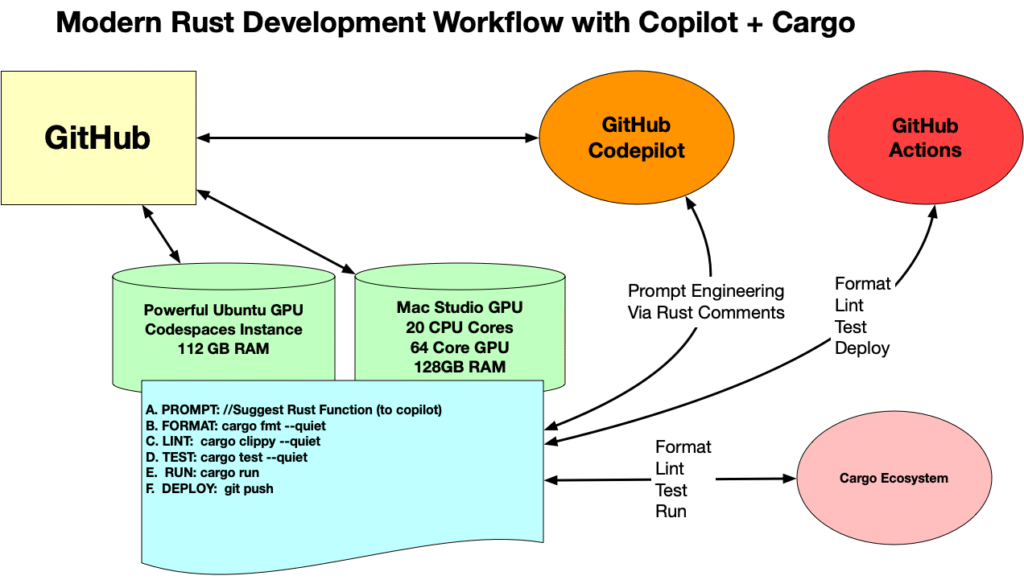Introduction
Rust is a powerful systems programming language known for its speed, safety, and concurrency features. However, writing its code is one thing; optimizing it for peak performance is another. Whether you’re working on a high-frequency trading system, a game engine, or a web backend, squeezing out every bit of efficiency matters.

Want to make your Rust code faster? You’re in the right place. It is already quick, but with a few smart tweaks, you can push it even further.
This guide covers simple ways to speed up your programs. No jargon, just clear steps to better performance.
1. Rust Code: Pick the Best Data Structures
Your choice of data structure changes how fast your code runs.
- Use
VecFor lists that change size often HashMapis great for quick lookups- Try
SmallVecfor tiny collections (under 10 items)
Test different options. Sometimes the “slower” choice works better for your specific case.
If you want to read Meta, Click Here
2. Rust Code: Let Rust Do the Heavy Lifting
Rust’s compiler is smart. It turns high-level code into fast machine code.
- Iterators are just as quick as manual loops,
matchbeating longif-elsechains in speed
Write clear code first. Make it work right before trying to make it fast.
3. Rust Code: Cuts Down on Memory Use
Creating and deleting memory takes time. Do less of it.
- Reuse variables instead of making new ones
Cow<str>helps avoid copying strings- Go easy on
BoxandRc—Only use when needed
Small memory fixes often give big speed boosts.
4. Rust Code: Speed Up Important Loops
Slow loops drag down your whole program.
- The compiler often unrolls loops for you
get_unchecked()skips safety checks (use carefully!)for_eachcan be quicker thanforwith iterators
Then, always verify that changes improve performance with a profiler.
5. Rust Code: Tell the Compiler to Work Harder
Rust can optimize better when you ask it to.
Add this to your Cargo.toml:
toml
Copy
Download
[profile.release] opt-level = 3 # Maximum optimization lto = true # Better linking codegen-units = 1 # Slower compile but faster code
Then, these settings make final builds quicker but take longer to compile.
6. Use unsafe Only When Needed
unsafe Code can be faster but riskier. Only use it for:
- Firstly, talking to C code
- Secondly, super low-level tricks
- Thirdly, proven slow spots after testing
Wrap unsafe bits in safe functions to keep your code clean.
7. Find the Slow Parts First
Don’t guess where your code is slow—check.
criterionmeasures speed changesflamegraphshows what’s taking timeperfgives deep system details (Linux)
Then, fix the slowest parts first for the biggest gains.
Common Questions
Q: Is Rust faster than C++?
A: Often yes, but expert C++ can match it. Rust’s safety helps the compiler optimize well.
Q: When should I use Arc?
A: Only when sharing data between threads. Rc is faster for single-threaded code.
Q: Why does Rust take so long to compile?
A: Optimization takes time. Use --release only for final builds and split big projects.
Q: Is unwrap() slow?
A: No, but it crashes on errors. Use expect() for clearer crashes or proper error handling.
Q: How much faster is Rust than Python?
A: Often 50-100 times faster for number crunching and heavy work.
Advice
- Firstly, write clear code first
- Secondly, find the real slow spots with tools
- Thirdly, fix the biggest problems first
Finally, Small changes often give big speedups. Try these tips and see how much quicker your code can go!
Final Thoughts
Optimizing it requires a mix of smart data structures, compiler tricks, and careful profiling. Start by writing clean, idiomatic code, then optimize only the bottlenecks.
By following these tips, you’ll build blazingly fast and reliable Rust applications. Now, go benchmark your code and see the difference!
